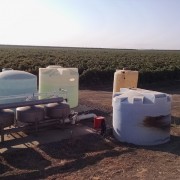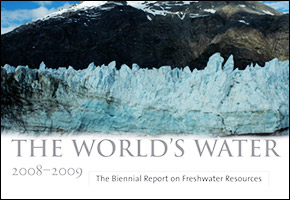The Stream, March 9: New Water
Singapore plans to more than triple its desalinated water capacity by 2013, when its second desalination plant is slated to start operations, according to AFP. The new facility will produce 318,500 cubic meters of water per day. Can desalination and water recycling reduce Singapore’s dependence on imported water?
A shift from conventional agriculture to eco farming can double food production within 10 years, according to a United Nations report published this week. “Agroecology” could also make crops more resilient to floods, droughts and a rise in sea levels, and has already reaped good results in many African countries.
Meanwhile, a study by the U.S. Agriculture Department found that no-till wheat production decreases soil erosion and increases water quality protection compared to the conventional heavily tilled winter wheat-fallow system, UPI reports. Even though the no-till production also saves fuel and time, scientists found no significant yield difference between the two production methods.
Lukoil, Russia’s largest non-state-controlled oil company, is looking to invest in the shale gas fields in the United States, Bloomberg reports. It joins Exxon Mobil and PetroChina in a line of companies interested to get access to the drilling technology and unconventional fuel reserves in North America.
More than 1.5 million jobs are directly tied to the Great Lakes, according to a study by the University of Michigan. The employment generates roughly $62 billion in wages, mostly in manufacturing, tourism, shipping and agriculture.
The Stream is a daily digest spotting global water trends. To get more water news, follow Circle of Blue on Twitter and sign up for our newsletter.
, a Bulgaria native, is a Chicago-based reporter for Circle of Blue. She co-writes The Stream, a daily digest of international water news trends.
Interests: Europe, China, Environmental Policy, International Security.








Leave a Reply
Want to join the discussion?Feel free to contribute!